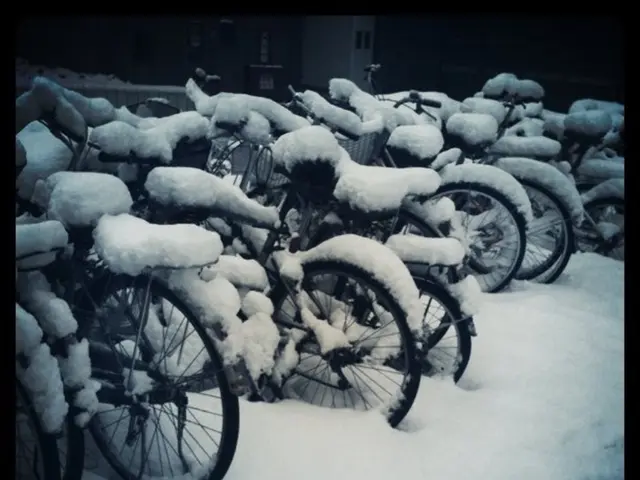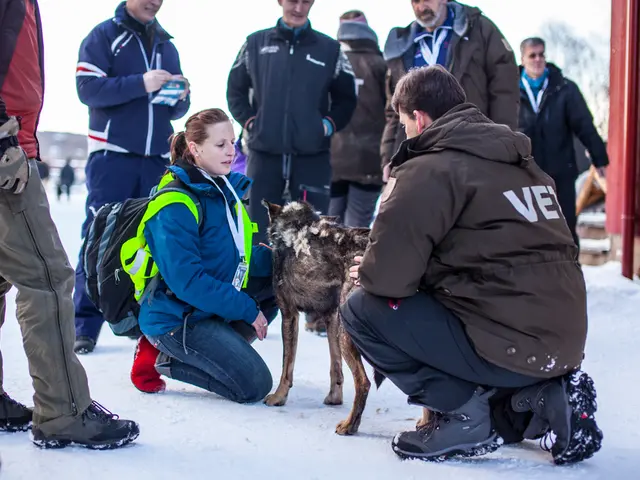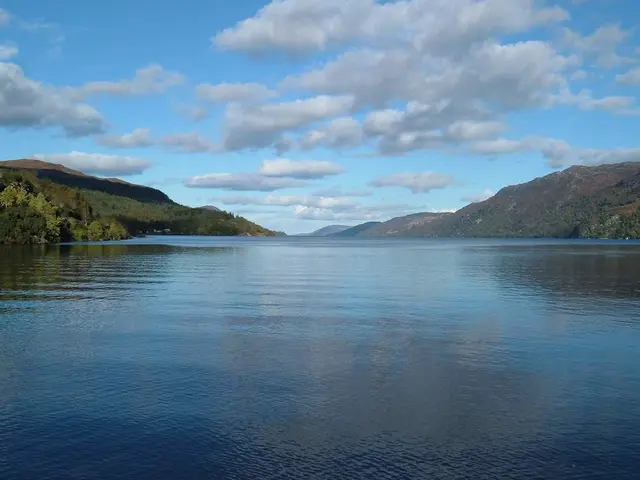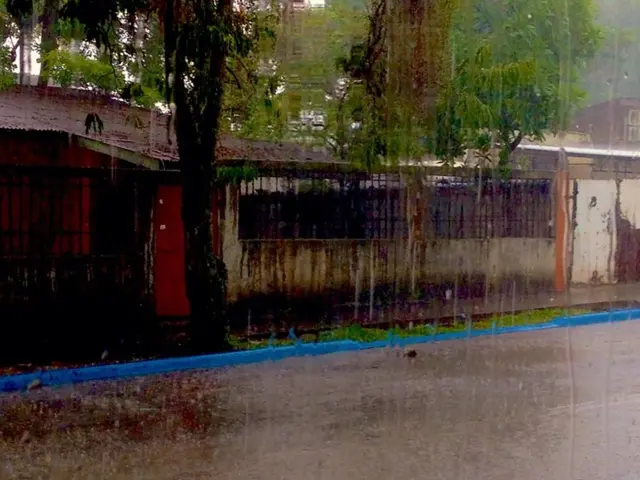Wildfires Force Mass Evacuations in Three Canadian Provinces, Causing Potential Air Quality Issues to Extend to Certain American States.
Firestorm Across Canada: Evacuations and Hazardous Smoke Affect Thousands
Holy smokes, Canada! It's getting real hot and heavy up there. More than 25,000 residents have been forced to pack their bags and split from their homes across three provinces, as dozens of wildfires continue to burn.
Majority of the evacuees are from Manitoba, where a state of emergency was declared last week. The number of evacuated residents there stands at a whopping 17,000. Alberta isn't far behind with 1,300 residents sent packing, while Saskatchewan has about 8,000 people on the move. And officials are warning the Saskatchewan figure might climb higher.
The smoke from these fires is wreaking havoc on air quality, reducing visibility, and creating some seriously smoky conditions even in the U.S. bordering states. "Air quality and visibility due to wildfire smoke can fluctuate over short distances, and can vary considerably from hour to hour," Saskatchewan's Public Safety Agency warned, emphasizing that as smoke levels increase, health risks follow suit.
Premier Scott Moe of Saskatchewan thanked firefighters, emergency crews, and aircraft hailing from fellow provinces and several U.S. states, including Alaska, Oregon, and Arizona, for their assistance in quelling the wildfires. He tweeted, "We are truly grateful, and we stand stronger because of you."
The persistent hot, dry weather has facilitated the growth of these fires, stretching resources thin. Moe highlighted that the next four to seven days are absolutely crucial, as the province awaits a change in weather pattern and some much-needed rainfall.
Flin Flon, a community nearly 645 kilometers northwest of Winnipeg, Manitoba, has suffered the brunt of the situation, as over 5,000 evacuees were residents of this very town. In northern Manitoba, the community of Cranberry Portage lost power and witnessed a mandatory evacuation of 600 residents due to a nearby fire.
The fire plaguing Flin Flon erupted near Creighton, Saskatchewan, a week ago and has proven a challenge for crews trying to keep it in check. Water bombers have been sidelined due to heavy smoke and a pesky drone infiltration.
The U.S. Department of Agriculture's Forest Service deployed an air tanker to Alberta and plans to dispatch 150 firefighters and equipment to Canada. Meanwhile, the U.S. Environmental Protection Agency reported that "unhealthy" air quality levels were achieved in North Dakota, a small swath of Montana, Minnesota, and South Dakota on Sunday.
In certain regions of the U.S., gusty winds and steep terrain are making it tremendously difficult for firefighters to battle the flames.
Shelters have popped up across Manitoba for evacuees seeking refuge, with Winnipeg opening up public buildings to accommodate these unfortunate souls. As Winnipeg struggles to find accommodations for the influx of evacuees, tourists, business travelers, and even attendees of conventions, Manitoba's Indigenous leaders have requested that hotel owners prioritize these evacuees.
According to Manitoba's Indigenous leaders, hotel rooms in the cities are filling up fast, leaving evacuees to sleep on floors, lounge in hallways, and wait outside. Grand Chief Kyra Wilson of the Assembly of Manitoba Chiefs said this was one of the largest evacuations in the province since the 1990s, adding sadly, "It's really sad to see our children having to sleep on floors. People are tired."
The wildfire season in Canada typically runs from May through September. The worst wildfire season on record occurred back in 2023, filling much of North America with hazardous smoke for months on end.
- The Canadian wildfires have caused numerous businesses in Manitoba, Alberta, and Saskatchewan to face difficulties, as thousands of residents have been evacuated, affecting local commerce.
- The environmental science community, along with weather forecasting experts, are closely monitoring the wildfires and the impact they may have on climate change, due to increased greenhouse gas emissions.
- Seattle, located in the United States, has experienced reduced air quality due to wildfire smoke blowing across the border from Canada, which has raised concerns among the local government regarding public health.
- The Science and Technology Ministry of the Canadian government is conducting research to develop more efficient methods for combating wildfires, with a focus on making water bombers operational even in heavy smoke conditions and reducing the impact of drone infiltration.
- The event highlights the urgent need to address climate-change and environmental-science issues, as the increasing occurrence and intensity of wildfires can have devastating effects on human health, economies, and the environment.








